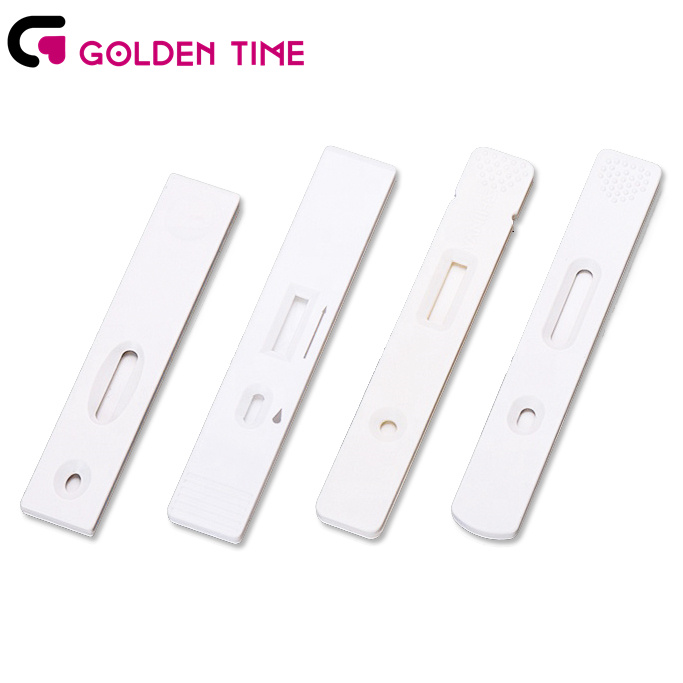Nov . 25, 2024 23:43 Back to list
Understanding HCG Levels in Home Pregnancy Test Cassette Results
Understanding Pregnancy Tests A Closer Look at HCG Cassette Tests
Pregnancy tests have become essential tools for individuals seeking to confirm or rule out pregnancy. Among the various types available, the HCG cassette test is one of the most common and popular methods for detecting pregnancy. This article will delve into how these tests work, their reliability, and when to use them, providing a comprehensive understanding for anyone considering utilizing an HCG cassette test.
What is HCG?
HCG, or human chorionic gonadotropin, is a hormone produced during pregnancy. The placenta begins to produce HCG shortly after a fertilized egg attaches to the uterine lining. This hormone can be detected in urine or blood, making it a key indicator of pregnancy. HCG levels usually rise rapidly in the early stages of pregnancy, doubling every two to three days, which is why it serves as an effective marker for testing.
How Does an HCG Cassette Test Work?
The HCG cassette test is a simple, easy-to-use device typically resembling a small piece of plastic with a designated area for urine application. Users collect a urine sample and either dip the cassette into the sample or apply the urine directly to the testing area, depending on the specific design.
After a few minutes, the results can be read. Most HCG cassette tests will display two lines if the test is positive and one line if it's negative. The presence of the second line indicates that HCG is present in the urine, confirming pregnancy. It's important to note that the intensity of the lines may vary based on the concentration of HCG in the urine and the sensitivity of the test.
When is the Best Time to Take the Test?
pregnancy test hcg casette

Timing is crucial for obtaining accurate results from an HCG cassette test. For the best outcome, it is recommended to wait until after a missed period, typically around one to two weeks after conception. Testing too early may result in a false negative, as HCG levels may not be high enough to detect.
For the most accurate results, it is advisable to use the first morning urine for testing. This is because urine concentrations of HCG are usually highest in the morning after a night of sleep. Drinking a lot of fluids before taking the test can dilute urine, potentially affecting the accuracy of the results.
Reliability and Accuracy of HCG Cassette Tests
HCG cassette tests are highly reliable when used correctly. Most commercially available tests boast over 99% accuracy when testing after a missed period, but this can vary based on factors such as the test's sensitivity and how closely the instructions are followed. It is essential to read the instructions thoroughly and ensure that the test has not expired.
However, false positives and negatives can occur. A false negative may result from testing too early, while a false positive might occur due to hormone medications, certain medical conditions, or improper test usage. It is also advisable to consult a healthcare professional for confirmation, especially if there are any concerns about the accuracy of the home test.
Conclusion
HCG cassette tests are valuable tools for individuals trying to determine if they are pregnant. Their ease of use, accessibility, and reliability make them a preferred choice for many. By understanding what HCG is, how these tests function, and the importance of timing, users can make informed decisions about their reproductive health. However, it is always best to follow up with a healthcare provider for confirmation and further guidance after receiving test results. This will ensure that you receive the care and support necessary during this critical time.
In summary, HCG cassette tests offer a convenient and effective way to check for pregnancy at home. With proper knowledge and timing, these tests can be a helpful first step in understanding one’s reproductive status, paving the way for informed decisions and next steps.
-
Highly Accurate hCG Pregnancy Test Strips - 5 Min Results
NewsAug.02,2025
-
Premium Empty ABS Plastic Cassettes: Durable & Lightweight Storage
NewsAug.01,2025
-
Accurate Cocaine (Coc) Rapid Test Kit | Fast & Reliable Detection
NewsJul.31,2025
-
Accurate HCG Pregnancy Test Strips | Fast Home Use Kit
NewsJul.31,2025
-
Reliable Early Pregnancy Test Kit Supplier - Multi Plastic Cassette Options
NewsJul.30,2025
-
Transferrin Rapid Test Cassette – Reliable Tumor Marker Detection
NewsJul.29,2025

